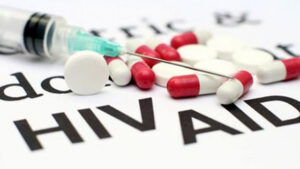 WASHINGTON, May 16, CMC – The Pan American Health Organization (PAHO) says three Caribbean Community (CARICOM) countries have eliminated mother to child transmissions of HIV and syphilis.
WASHINGTON, May 16, CMC – The Pan American Health Organization (PAHO) says three Caribbean Community (CARICOM) countries have eliminated mother to child transmissions of HIV and syphilis.
In its 2024 annual report released here and documenting its work to strengthen health security across the Americas amid infectious disease outbreaks, PAHO said that there had been “notable progress” with the “Disease Elimination Initiative,” and that Belize, Jamaica, and St. Vincent and the Grenadines eliminated mother-to-child transmission of HIV and syphilis.
The report, which also examined the region’s heavy reliance on imported vaccines and pharmaceuticals, and persistent systemic inequities, noted that PAHO’s Regional Revolving Funds facilitated access to 224 million vaccine doses and delivered five million treatments, reinforcing immunization programmes and overall public health capacity.
It said that the Strategy on Epidemic Intelligence (2024–2029), the first of its kind globally, strengthened early warning systems. Meanwhile, digital transformation in the health sector, backed by over US$900 million in loans from the IDB, reached 20 countries.
“In 2024, we launched powerful initiatives not only to detect and treat disease, but to transform the health systems,” said Dr. Jarbas Barbosa, PAHO Director.
“This is about building resilience so that our health systems don’t just survive the next crisis, they are better prepared to respond.”
The 2024 Annual Report: Advancing Health for Regional Security provides a comprehensive account of these efforts.
It noted that a dengue outbreak reached 13 million cases, nearly triple 2023’s total, with over 7,700 deaths, primarily in Brazil, and limited transmission in U.S. states. Avian influenza (H5N1) recorded 66 human cases in the US and in Canada, and over 1,300 animal outbreaks region-wide, while Oropouche virus spread across 12 countries.
“Throughout the year, PAHO served one billion people across 35 Member States and marked the 100th anniversary of the Pan American Sanitary Code—the first multilateral agreement to coordinate disease control across borders. The Organization also advanced health security through enhanced surveillance, expanded primary health care, and increased vaccine production,” PAHO said.
The report details how PAHO strengthened health systems through key initiatives, including the Alliance for Primary Health Care in the Americas, a collaboration with the Inter-American Development Bank (IDB) and World Bank.
“This initiative is working across 10 countries to expand primary health care (PHC), which can address up to 80 per cent of health needs, enabling more equitable and responsive systems for routine care and emergencies.”
The report highlights efforts to reduce the region’s reliance on imported pharmaceuticals, including support for mRNA vaccine development in Argentina and Brazil, such as a vaccine targeting H5N1 avian influenza.
“Today, Latin America and the Caribbean import six times more pharmaceuticals and 80 times more vaccines than they export,” PAHO said.
